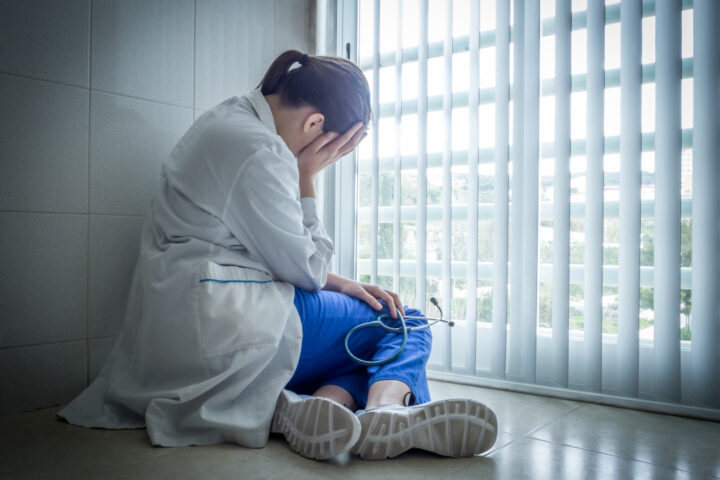“If there is one thing that will definitely change about our complex healthcare system, practices and behaviors aren’t one of these”
One comment I get whenever I talk about “learning organization” as a way for healthcare institutions to adapt to the new normal is this- “I really like the change concepts your saying, but what else can I do if many in my organization doesn’t embrace that change philosophy?”
Rina is a new resident physician assisting more senior residents attending and treating fractures at one healthcare institution. Yet to learn the finer details of cast application and monitoring, her team leader instructed her to apply cast on a young patient who had recently incurred a forearm fracture after a fall from a height. The senior resident added that she “read about techniques of applying and monitoring cast” from the recommended textbook. When an emergent call from ER summoned her senior to attend to another patient, Rina eagerly went on applying the cast to the patient’s forearm alone and unsupervised, with only her recently “acquired” cast application techniques, and a single experience of seeing one senior resident applying a cast in their last team duty. She sent home the patient after advising the parent about cast monitoring she learned from the book she read.
Less than two hours after, the patient was brought back to the ER in pain and crying. “My arm hurts! like it is being squeezed and twisted! ” complained the patient. Suspecting that the cast its too tight, Rina instinctively cut the cast in half (bivalved) using a cast cutter. Patient immediately reported relief, but Rina was shaken by the experience. She felt she did what is the right for the patient and still ended up with a potential complication.
Rina brought her experience in one group mentoring discussion with an attending consultant. “Is there a certain level of competency which a resident possess to be able to apply cast and prevent this complication from happening?” she asked. “If you are referring to how many times did the resident applied cast to the same extremity in a number of patients in the past, there’s no ballpark figure” said the consultant. “The incidence of that complication is less than a percent. What we know is that you have to have some high index of suspicion to catch the prelude to a complication” the consultant added.
Rina then talked to several ward nurses and patient companions about their knowledge of cast monitoring and what they actually do in the wards and at home. “We write on the monitoring sheet what our clinical inspection would tell us, but I’m not quite sure about what’s the exact results do we refer to the residents on duty” said one nurse. One parent told her that although pain and tightness in the casted extremity is a danger sign, “we’re leaving”we live far away from the hospital it is usually too late when we arrive back in the hospital.
Rina is currently doing a research on a better protocol for cast monitoring and preventing such devastating complication before it happens. Since the incidence of such devastating complication is low (as we all believe it to be based on foreign literature) and local literature about this complication is scarce, she lamented that her experience and research will just be buried in anecdotes again. I smiled. “Just keep on doing what you are doing” I said to Rina . “Maybe your research results will change behaviors, practices. Maybe it won’t, but at least you will have made things better for you, your patients, and then some”.
“Do what Rina did” is my reply to the comment -“I really like the change concepts your saying, but what else can I do if many in my organization doesn’t embrace that change philosophy?” Start small, talk to like minded people, research, recommend a change policy, do it, even if others won’t. Maybe your new policy will change behaviors, practices. Maybe it won’t, but at least you will have made things better for you, your patients, and then some”.
So what would a healthcare professional do when you want to change behaviors and practices in your organization yet many doesn’t espouse the change philosophy? This will be the topic of our #HealthXPh chat this Saturday May 27, 2023 9PM Manila time. Here are some guide questions:
- T1. Do you have any experience in the past urging you to change practices and behaviors in your healthcare organization?
- T2. What healthcare change initiative did you do and what were the results?
- T3. What advice would you give a colleague or health advocate when it comes to changing behaviors and practices in healthcare?
Please join #HealthXPh chat Saturday May 27, 2023 9-10 PM manila time. Reply to the guide question above via twitter and append #HealthXPh to all your tweets! See you there!
(Image by wavebreakmedia_micro on Freepik)







